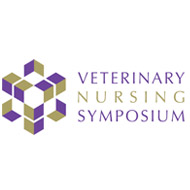Symposium looks to the future of veterinary nursing

Delegates attended an array of presentations, including a talk on evidence-based medicine and a lecture on how digital imaging has evolved.
Over 40 centre heads, clinical coaches and organisations joined Central Qualifications (CQ) for its annual symposium. Hosted at the awarding organisation's headquarters in Suffolk, guests at the two-day event also included OSCE examiners and lecturers.
Following a warm welcome by CQ director Jacqui Garrett, chair of governors Martin Barrow introduced CQ’s new Diploma in Veterinary Nursing. The new and improved DipVN follows extended consultation across the profession and marks the first significant change of the VN qualification for eight years.
Commenting on the new diploma, CQ's quality assurance manager Denise Burke said: “Veterinary Nursing is rapidly evolving and our new qualification is designed to meet the needs of employers and underpins the future of veterinary nursing.”
During the symposium, delegates attended an array of presentations, including a talk on evidence-based medicine, a lecture on how digital imaging has evolved and an update on the Central Skills Log.
RCVS director of veterinary nursing Julie Dugmore also brought delegates up to speed with VN Futures - a companion project to Vet Futures, which aims to draw up a blueprint for the veterinary nursing profession.
Day two of the VN symposium was led by BVNA president Sam Morgan - one of CQ’s lead examiners - and focussed on CQ’s OSCE process and procedures. Four DipVN students joined the delegates and participated in a mock exam so that new examiners could gain experience of being in an exam situation.
Commenting on the symposium, Jacqui Garrett said: “We arrange the VN symposium every year for the benefit of all those involved in veterinary nurse education. The feedback we've had this year has been excellent.”



 The Animal and Plant Health Agency (APHA) has updated its online reporting service for dead wild birds.
The Animal and Plant Health Agency (APHA) has updated its online reporting service for dead wild birds.